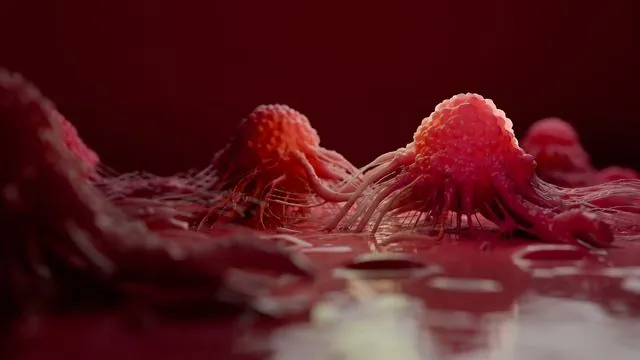
Groundbreaking CAR T-Cell Therapy Tackles Brain Tumors with New Strategies
2024-11-13
Author: Daniel
Groundbreaking CAR T-Cell Therapy Tackles Brain Tumors with New Strategies
In recent years, CAR T-cell therapy has emerged as a revolutionary approach in the fight against cancer, especially in targeting chronic conditions like leukemia. The process involves extracting T-cells from a patient's own blood, reprogramming them in a laboratory to recognize specific markers on cancer cells using a specialized receptor called chimeric antigen receptor (CAR), and then reinfusing them into the patient's body to seek and destroy the malignant cells.
However, solid tumors, particularly aggressive brain tumors such as glioblastoma, have posed significant challenges for CAR T-cell therapies. The main hurdles include the difficulty of T-cells penetrating the tumor, the presence of diverse cancer cell types that may evade recognition, and the hostile microenvironment surrounding solid tumors that actively impedes immune responses. "In the brain, where T-cells naturally do not reside, the environment is particularly unfavorable," states Professor Gregor Hutter from the University of Basel and the University Hospital Basel.
Battling Tenacious Tumors
Professor Hutter's team is actively researching methods to counter glioblastomas, notorious for their ability to recur after treatment. Their innovative approach involves utilizing the operational window provided by surgical intervention to reprogram the patient's T-cells into CAR T-cells. Injecting these reengineered cells directly into the tumor site bypasses barriers that typically prevent effective treatment, allowing the T-cells to target and eliminate cancer cells possessing identifiable markers.
From Passive to Proactive: The Role of Tumor Microenvironment
In a groundbreaking addition, Hutter's CAR T-cells are designed with a secondary feature that aims to modify their surrounding microenvironment to enhance their efficacy. The research team introduces a blueprint for a specific molecule that inhibits the signals used by tumors to co-opt immune cells like microglia and macrophages. These signals often convert these immune defenders into allies of the tumor instead of aggressors. By halting these signals, the immune cells can rediscover their original protective roles, joining forces with CAR T-cells to attack glioblastoma—even those cells that might not carry the recognizable structures.
Promising Preclinical Results
Initial trials involving mouse models implanted with human glioblastoma cells have shown highly promising results. The CAR T-cells successfully eliminated all cancer cells identified in these experiments. Furthermore, assessments against lymphoma, a cancer affecting the lymphatic system, have also yielded encouraging outcomes.
Clinical Trials on the Horizon
The next critical step for Hutter and his team is to move this innovative treatment into first-in-human clinical studies to determine its safety and effectiveness for patients. "Given that we administer the treatment locally rather than systemically, we anticipate fewer side effects on the body," notes Hutter. Nonetheless, he also emphasizes the importance of monitoring potential side effects, particularly those affecting the nervous system, which have been observed in other CAR T-cell therapies.
As excitement builds within the scientific community regarding this advance in cancer therapy, the outcome of these clinical trials could signal a new chapter in the battle against one of the most formidable types of cancer, offering hope to countless patients and families affected by glioblastoma.
Stay tuned for further updates, as this research may well transform the landscape of cancer treatment as we know it!


 Brasil (PT)
Brasil (PT)
 Canada (EN)
Canada (EN)
 Chile (ES)
Chile (ES)
 España (ES)
España (ES)
 France (FR)
France (FR)
 Hong Kong (EN)
Hong Kong (EN)
 Italia (IT)
Italia (IT)
 日本 (JA)
日本 (JA)
 Magyarország (HU)
Magyarország (HU)
 Norge (NO)
Norge (NO)
 Polska (PL)
Polska (PL)
 Schweiz (DE)
Schweiz (DE)
 Singapore (EN)
Singapore (EN)
 Sverige (SV)
Sverige (SV)
 Suomi (FI)
Suomi (FI)
 Türkiye (TR)
Türkiye (TR)